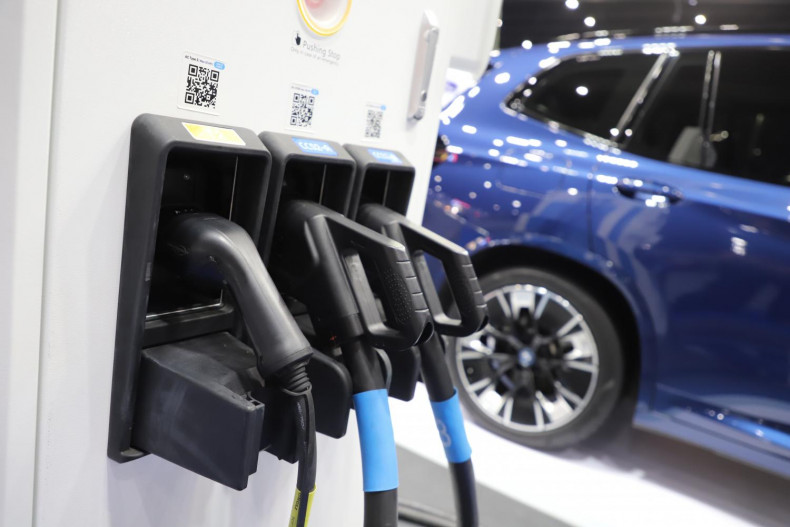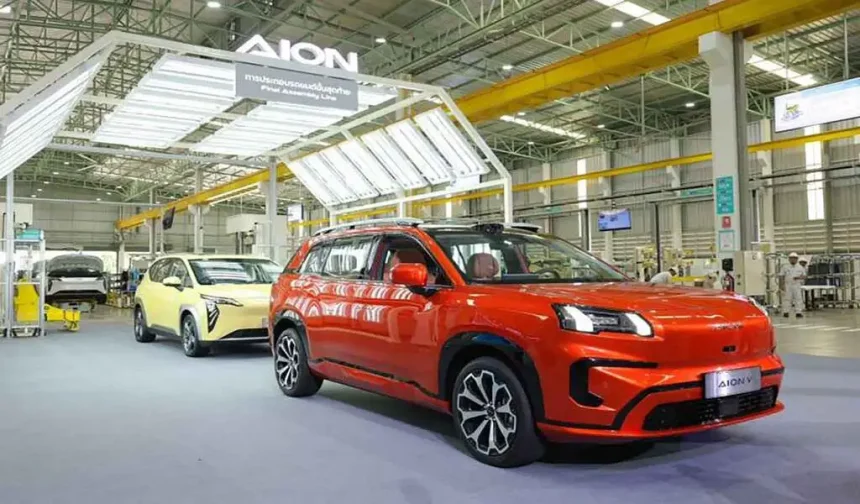(CTN News) – To strengthen Thailand’s automotive supply chain, the Industry Ministry has asked Chinese EV manufacturers to source at least 40% of their parts domestically.
The 40% criterion was proposed following discussions between the ministry and GAC Aion New Energy Automobile, an EV manufacturer under Guangzhou Automobile Corporation (GAC), which has pledged to employ 40% local content.
Commitments from Chinese EV Makers in Thailand
Thai auto parts manufacturers, who are largely familiar with components developed for internal combustion engines (ICE), continue to require support from car manufacturers, even as the latter move their focus to electric mobility technologies, according to Industry Minister Pimphattra Wichaikul.
“Officials recently held discussions with GAC Aion and other Chinese EV makers concerning the use of auto parts produced by Thai companies,” the woman told the Bangkok Post.
“We also talked with them about EV technology transfer to develop the Thai automotive industry.”

Authorities want to ensure that local auto parts producers can adapt to technological developments and maintain their operations, citing concerns that EV manufacturers will primarily purchase EV components from Chinese enterprises and build their own EV supply chain.
The Board of Investment (BoI) had previously met with Chinese EV companies to discuss the possibilities of employing local car parts for their EV operations in Thailand.
“Most Chinese EV manufacturers agreed to the government’s request to employ auto parts manufactured by Thai enterprises. “This is a good sign,” said Narit Therdsteerasukd, the BoI secretary-general.
According to the BoI, Chongqing-based Changan Automobile, which has pledged to spending up to 10 billion baht in Thailand, will begin with a 60% local content ratio, rising to 90% in the future.
Neta promised to buy parts from 16 Thai companies, accounting for 60% of total components, with a long-term goal of increasing that percentage to 85%.
Great Wall Motor stated that it aims 80-90% of its EV components to be made from local materials, although BTD, like GAC Aion, stated that domestically sourced parts would account for more than 40% of total EV components.
Over the last 2-3 years, the BoI has supported investments worth 80 billion baht in the EV industry, with total EV output of 400,000 units.
The board promotes the expansion of the EV industry by providing investment incentives to EV-related enterprises such as battery production and EV charging stations.
However, Ms Pimphattra clarified that the government will not “leave behind” makers of ICE vehicles.
Authorities will continue to encourage ICE manufacturers that have been in business in Thailand for more than a decade, as well as hybrid and plug-in hybrid EV producers.
Source: Bangkok Post

Anna Wong serves as the editor of the Chiang Rai Times, bringing precision and clarity to the publication. Her leadership ensures that the news reaches readers with accuracy and insight. With a keen eye for detail,














